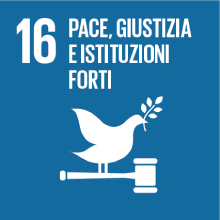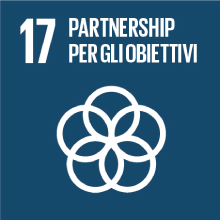HISTORY OF EUROPEAN CONSTITUTIONALISM
- Anno accademico
- 2020/2021 Programmi anni precedenti
- Titolo corso in inglese
- HISTORY OF EUROPEAN CONSTITUTIONALISM
- Codice insegnamento
- LM5850 (AF:335721 AR:176162)
- Modalità
- Blended (in presenza e online)
- Crediti formativi universitari
- 6
- Livello laurea
- Laurea magistrale (DM270)
- Settore scientifico disciplinare
- M-STO/02
- Periodo
- II Semestre
- Anno corso
- 1
- Spazio Moodle
- Link allo spazio del corso
Inquadramento dell'insegnamento nel percorso del corso di studio
Objectives
-Provide students with a clear theoretical and empirical framework to understand the concept of constitutionalism according to an historical perspective
-Analyze themes of constitutional history (good government; written constitution, fundamental rights) in a cross-cultural and multidisciplinary perspective able to encompass political, economic and cultural factors
-Analyze the key-themes of constitutionalism and their historical development
The above-mentioned specific objectives aim to give students the instruments necessary to develop a critical and personal view of the topics discussed and to develop an independent and multidisciplinary methodology for the analysis of historical phenomena to better understand the present.
Risultati di apprendimento attesi
1. Knowledge and understanding: at the end of the course the students will be able to
- Understand the general framework of the History of European constitutionalism
- Understand the cultural approach to constitutional history
- Understand the multidisciplinary character of Constitutional History through the thematic cases presented
- Understand the historical processes of European constitutionalism
2. Ability of applying knowledge and understanding: at the end of the course the students will be able to
- Understand the general framework of the History of European constitutionalism> Ability of discussing subjects related to the field (History of constitutionalism) in a specialized language and according to an historical methodology and to explain them to classmates
- Understand the cultural approach to constitutional history > Ability of comprehending the methodology and to confront it with other instrument of analysis they already master from previous studies (e.g. European history, Cultural history, History of International Relations)
- Understand the multidisciplinary character of Constitutional History through the thematic cases presented> Ability of applying the historical methodology through the cases analyzed also to other fields of study (e.g. final dissertation)
- Understand the historical processes of European constitutionalism > Ability of analyzing events and phenomena in an historical dimension
3. Judgement abilities: at the end of the course the students will be able to
- Ability of connecting the facts and data learnt during lessons
- Ability of organizing the course materials (lessons and readings) in a coherent interpretation
- Ability of interpreting and commenting the weekly reading materials
4. Communicative abilities: at the end of the course the students will be able to
- Ability of presenting the issues related to the field of study using specialized language
- Ability of presenting the knowledge acquired from lessons and readings in a coherent discourse
- Ability to gather data and to create learning supports (e.g. hand-out, ppt presentation) in order to present one own’s results during lessons and seminars
5. Learning abilities: at the end of the course the students will be able to
- Ability of taking notes during lessons
- Ability of critically reading the assigned bibliography
- Ability of connected the knowledge acquired to nowadays issues
Prerequisiti
A good knowledge of general history (15th – 21th centuries). Students must fulfill the minimum credit requirements (ECTS) for the admission to the MA in Comparative International Relations. Therefore, they must possess at least 6 ECTS from the politicall-social and historical Field. As an advanced course in European History, the course requires a sound knowledge of basic facts and processes of the European and international history based on high school programs.
Contenuti
This course will take into account the major issues in European Constitutional History, with specific focus on the following aspects:
- The concepts of (written)constitution and Constitutionalism
- The current debate on European Constitutionalism and on the EU Constitutional Treaty
- The origins of European Constitutionalism in 18th century
- The concept of good government
- The idea of Europe as small-state system
- Constitution and the state-nation
- From the Rights of Man to the Human Rights
- Cultural networks of European constitutionalism
Testi di riferimento
1) the slides from the classes, which will be made available on Moodle before the end of the course;
2) the online resources on Moodle
3) the following books
- Mark Gilbert, "European Integration: A Concise History", Rowman & Littlefield Publishers, 2011
- Antonio Trampus, "Emer de Vattel and the Politics of Good Government: Constitutionalism, Small States and the International System", Palgrave Macmillan, 2020 (only chapter 3, The Good Government: The Constituting and Constituted Nation, https://www.palgrave.com/gp/book/9783030480233 )
Modalità di verifica dell'apprendimento
Final oral exam. The exam aims to assess the critical understanding of the contents discussed during the course and the individual reflection on the assigned bibliography. It will therefore consist of three questions. The approximate duration is 25-30 minutes.
The first question will ask the student to present a chosen subject (taken from lessons or bibliography), so that he/she can show his/her ability of organizing information in a coherent discourse and in a historical perspective, to critically engage them and to integrate them with previously acquired knowledge (expected learning results 1.Knowledge and understanding and 4. Communicative abilities).
The second question will be on an issue explored during lessons so that the student can show his/her ability of personal re-elaboration and of critical listening (expected learning results 3.Judgement abilities and 5.Learning abilities).
The third question will concern the texts assigned, so that the student can show his/her ability of critical reading, understanding of scholarly literature connection with already acquired information (expected learning results 2.Ability of applying knowledge and understanding and 5. Learning abilities) .
The oral exam will define the 90% of the final grade.
Students will be asked to actively participate in lessons. In groups (3 to 5 students) they will also present to the class and discuss a personal research. In case of oral presentation of this research to the class, the presentation will define the 40% of the final grade. (Expected learning results 2.Ability of applying knowledge and understanding, 3.Judgement abilities and 4. Communicative abilities)
Modalità di esame
Metodi didattici
Seminars (lessons 10-15)
Case study analysis
Ppt presentations
Digital resources for Humanities
Obiettivi Agenda 2030 per lo sviluppo sostenibile
Questo insegnamento tratta argomenti connessi alla macroarea "Cooperazione internazionale" e concorre alla realizzazione dei relativi obiettivi ONU dell'Agenda 2030 per lo Sviluppo Sostenibile


